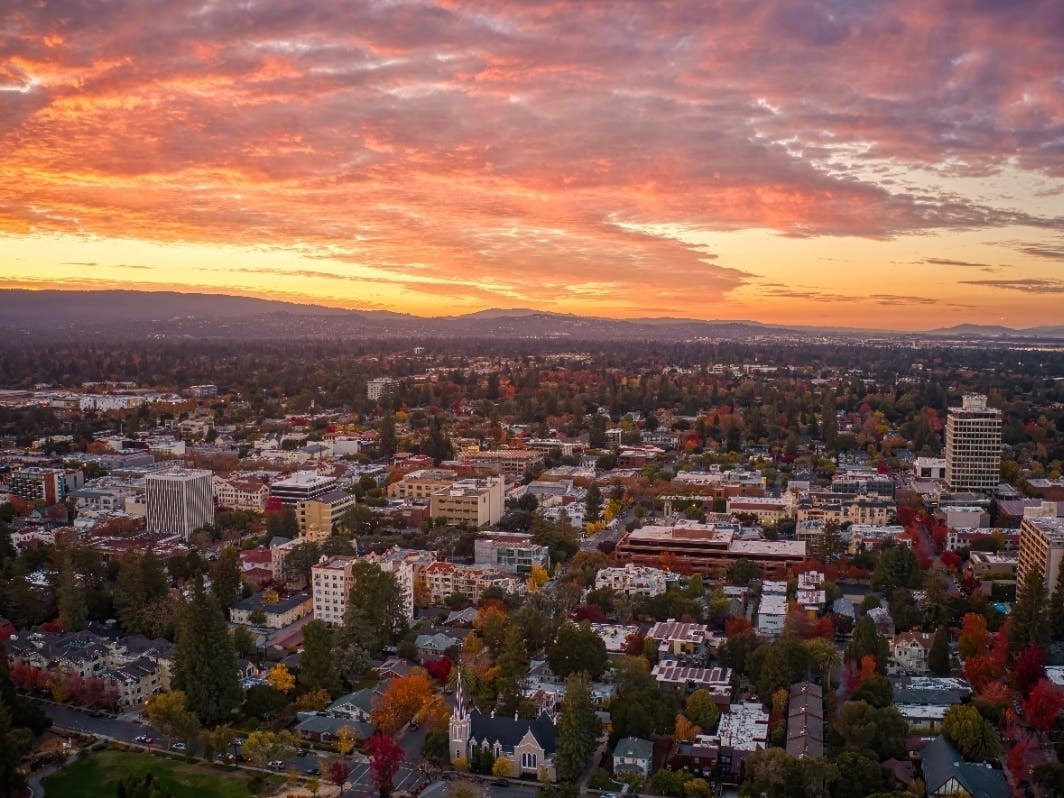Real Estate
Property Values Slow To Grow In Santa Clara County
The growth rate isn't fast enough to keep up with the county's budgetary needs, which could mean less money for public services.

SANTA CLARA COUNTY, CA — The total assessed value of all properties in Santa Clara County has increased, but revenue isn't enough to keep up with cost of services.
According to the 2024 Assessment Roll, Santa Clara County's assessed property value is $696.8 billion and has grown by $35.6 billion, or 5.4%, from last year. That growth rate isn't fast enough to keep up with the county's budgetary needs, which could mean less money in the coming year for public services that rely on the revenue, such as schools and improvements to county-owned health services. The slow growth stems from fewer properties changing ownership and a decline in new construction, especially commercial properties.
With slower property value growth comes less property tax revenue for the county. Santa Clara County Assessor Larry Stone said smaller growth could affect services offered by the county, especially education, since 44% of all property tax revenue goes to public education and 7% goes toward community colleges. The county takes 18% to fund various services, including local infrastructure improvements, and another 14% is divided among the 15 municipalities and unincorporated areas.
Find out what's happening in Los Gatoswith free, real-time updates from Patch.
"If the cost of services in anything, a business or government, goes up and the revenue doesn't keep up with it, then you've got consequences," Stone told San Jose Spotlight.
Assessed property values typically grow, according to Stone, who said the last time there was a negative assessment roll was in 2010 due to the Great Recession. Still, the slow rate of growth stems from multiple factors in the local market.
Find out what's happening in Los Gatoswith free, real-time updates from Patch.
The largest factor is changes in property ownership, which brought more than $14.9 billion into the county. Fewer properties have changed hands this year, Stone said, which he attributed to high interest rates.
Every property's assessed value informs the amount of property tax charged, and California's 1978 Prop. 13 allows for an annual 2% increase on the assessment of properties that have not had new activity, such as changing ownership. That increase accounted for $10.6 billion in the assessment roll's growth.
New construction has contributed $5.9 billion to the growth, and that's attributed to several large projects. Part of the Related project, at 5150 Calle Del Sol in Santa Clara, added $202.8 million in value and boosted that city's own assessment roll growth.
Commercial properties, such as office buildings, are especially in decline. Construction of new commercial buildings has essentially stopped, according to the assessor's office.
"If you have vacancies, that's not producing revenues," Stone told San Jose Spotlight. "If you have companies downsizing their space when they renew their lease, that's reducing the revenue and reducing the value of the commercial property."
Office vacancy rates in the county are still about 30%, maintaining a historic high, according to Mark Ritchie, president of Ritchie Commercial. He said it'll take about a decade for office spaces to recover from the rise of remote and hybrid work, which shifted the purpose of cities away from being work hubs. Over time, however, he said he can see vacancy rates going down as certain industries evolve, such as artificial intelligence.
"Wherever it happens, it'll happen here first, that's the good news," Ritchie told San Jose Spotlight. "Past tech booms were half in the Bay Area, this one's 90% ... We're just in the very first inning of (the AI shift) so we don't know yet, but we're always surprised by the employment surge that comes with new change in technology."
Stone said he expects property value growth to continue declining over the next few years, as the real estate market doesn't look to be improving.
If anything were to improve the growth of property values, Stone said it would be lowering interest rates. He said he's heard the federal government is considering lowering interest rates later this year. This would help incentivize property owners to sell with better rates and alleviate some of the high costs of construction. Construction takes a long time to complete, however, so Stone said the next few years will still be tense.
"Things will get worse next year," Stone told San Jose Spotlight. "Our values are down as of Jan. 1 this year, so most of the values are what happened last calendar year so things are getting worse."
Story by B. Sakura Cannestra, San Jose Spotlight.
Copyright © 2024 Bay City News, Inc. All rights reserved. Republication, rebroadcast or redistribution without the express written consent of Bay City News, Inc. is prohibited. Bay City News is a 24/7 news service covering the greater Bay Area.